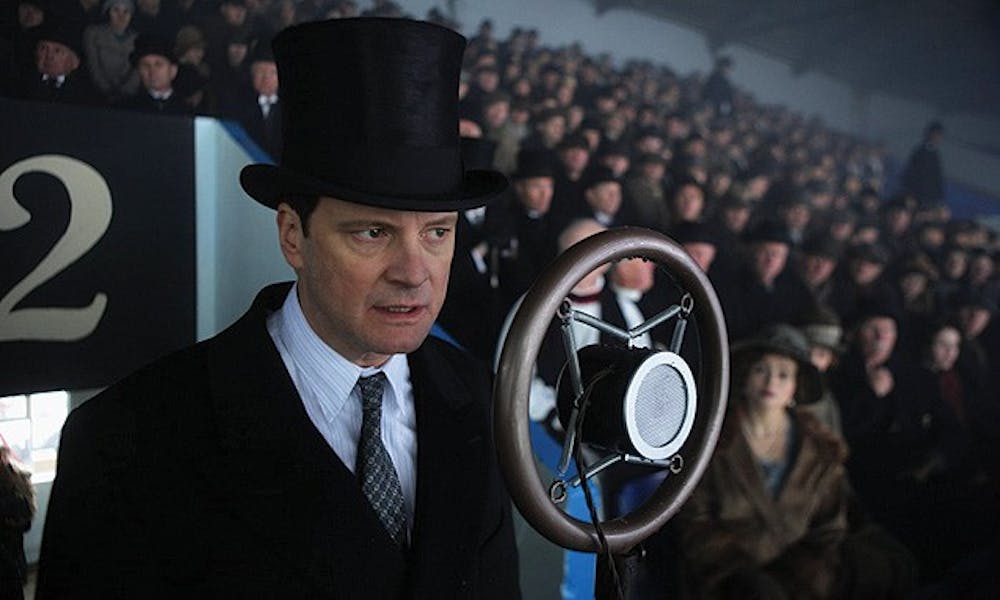Colin Firth’s usual suave leading man is absent in The King’s Speech, and not the least bit missed. The unlikely king is the role of Colin Firth’s lifetime—one the Academy will surely not overlook.
Prince George (Colin Firth) has a stutter. No matter—his older brother will be king, and he will live with his wife Elizabeth (Helena Bonham Carter) and two children in their loving home. That is the plan until his brother abdicates the throne to marry an American whore. The British Empire, outfitted with radios on the brink of WWII, looks to their stuttering king for guidance. Elizabeth employs the Australian Lionel Logue (Geoffrey Rush) as a speech therapist who probes deeper than the mechanical in a search to cure George’s affliction.
Only director Tom Hooper’s second feature—his previous works include the HBO John Adams’ miniseries—the film almost exclusively uses close-ups, allowing a perfect cast to express finesse over an impressive emotional range, from chagrin to anguish, delight to satisfaction. Warm greens, blues and shales dominate the color scheme and expertly enhance the delicate costumes and impeccable character placement. A visual peppering of hanging airplanes, shiny cars juxtaposed with horses, a new recording device and the proliferation of radios hints at a subtext: an unacknowledged cultural, generational and class revolution. Hooper is timid in his commitment, however, and thus delays his inevitable rise to auteur status.
The King’s Speech is a film for anyone who has ever struggled with what should not be, but is, and has had to rely on a friend to find strength for reconciliation.
Get The Chronicle straight to your inbox
Signup for our weekly newsletter. Cancel at any time.

